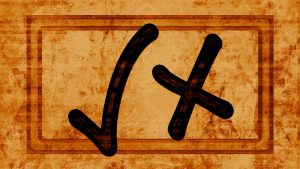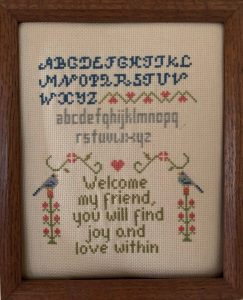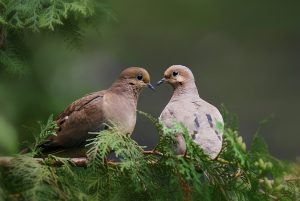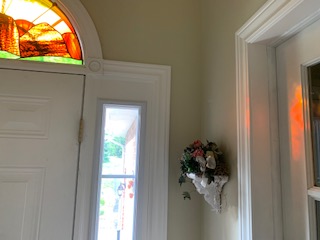
I’ve been watching a library video series on the world’s mythologies, which is a fascinating subject. While many tales stretch credulity, there seem to be some character types that consistently pop up. For example, the trickster who is prone to play pranks on both gods and men.
The Yoruba tribe of West Africa have the trickster named Eshu, and the story is told that he daily would greet two farmers as he walked the path between their two fields. The farmers were the best of friends, and were so similar in their routines and beliefs that they could barely be told apart. Ordinarily Eshu wore a black hat, but one day, among other costume changes, he decided to wear a hat that was half white and half red. After he had greeted them and walked on, the two friends commented on his change of clothing, one saying he was wearing a white hat and the other that he was wearing a red hat. They proceeded to argue and eventually came to blows, the friendship abandoned in each farmer’s faith in his own sight, and his determination to be right.
When others challenge your point of view, you tend to want to cling to your own assertions without considering that it is possible something else is going on. The Yoruba myth might be centuries old, but tunnel vision is an all too common human tendency.
My parents were sitting at their dining room table one day, when my father looked out the window and commented on the beautiful gray car that was leaving the neighbour’s driveway across the road. When my mother looked out the window, she saw a blue car and immediately challenged his statement. While they were busy arguing about it, my brother (a trickster in his own right) had seen that there were two separate automobiles. It was unlikely he would have been heard anyway in the scuffle, but he was too busy laughing to clear up the matter.
The role of trickster isn’t necessarily to make trouble – it does seem to be important in challenging the status quo. The farmers were so alike that there was a kind of stagnancy. “Error often creates a path that leads you out of your comfortable assumptions.” (Steven Johnson, Where Good Ideas Come From).
During the time my husband owned his own trucking business, he learned that it’s far better to make decisions than to keep hesitating. Inaction incurs a cost higher than that of making mistakes. When green summer students were hired at my workplace, accepting their fresh outlook opened up the possibility of implementing new ideas. From different perspectives, through trials and error, we grow, and go on to new possibilities we’d never considered before.
J.R.R. Tolkien, master of fantasy tale, drew many inspirations from Norse mythology, and wrote the following poem in The Nameton. To find new views and worlds, as he did, you have to be willing to take that second look.
Still round the corner there may wait,
A new road or a secret gate,
And though I oft have passed them by,
A day will come at last when I,
Shall take the hidden paths that run,
West of the Moon, East of the Sun.

 GERTY’S QUERTY
GERTY’S QUERTY


